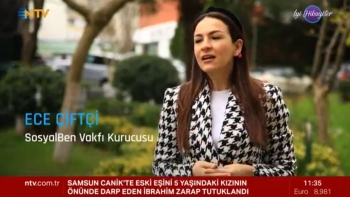Social Responsibility for Not Troubled But Responsible Generations
Is there anyone who knows the number of organs in our body? Or is there anyone who remembers Avogadro constant? Or anyone who can list the elements in the periodic table, which we tried to memorize for years at Chemistry class? None, right? However, we spent our times, when our creativity was at its peak, memorizing such information. According to a study, children enhance 98% of their brains with fantasies until they are 6 years old; however, when they are university students, they only use 4% of their brains for fantasies. Well, is it possible to balance this rate which decreased thanks to social responsibility projects? The way of solving problems we experience in social communities may be based on raising a responsible generation.
In early 18th century, the concept itself became influential with social responsibility and civil society projects we read in Western resources, and spread rapidly across the whole world in 20th century. The actions performed in United States of America for the abolition of slavery, aids provided to victims of earthquake during Venezuela War, organization of the first nursing teams by Florence Nightingale during war period are among the first examples of social responsibility projects across the globe. Taking the above examples into consideration, social responsibility projects assist many developments in the fields of economy, politics, religion and sociology. Many international organizations have made the world more livable with their projects, and they demonstrated and taught the importance and divinity of being a volunteer while undertaking such responsibility.
Although many problems were solved thanks to volunteers in the past, why do social responsibility projects not act as an education model? Why do professional volunteers not work for a better world?
In order to adopt the notion of contributing to society, we should not separate our own development from that of the society. The sense of volunteering is the basis of such development. Giving the sense of volunteering as of the early ages of children ensures that they, as they get older, adopt “volunteering” as a sense that they should be responsible for the rest of their lives. Social responsibility projects should be brought to school classes in order for a person to include volunteering into his/her life without experiencing any unmotivating discourse and behaviours, while the notion of volunteering is embraced by him/her. This is our one of the most important responsibility towards not only our children but also our prospective grandchildren.
During the period from kindergarten to university, the students take theory and practice courses for social responsibility as well as the courses in the curriculum; thus they have the chance to get to know the society they live in better and to develop their motor skills. The students that actualize their social responsibility projects while they are still at school classes have the opportunity of enhancing many competencies such as organization, communication, effective presentation, public speech, respect for diversity, self-confidence, ethics, rationalism, common sense, creativity and non-discrimination of sex, race, religion and language. Thanks to a project realized or participated, the student takes the most important step towards becoming an active citizen who finds solutions for social events.
In addition to individual achievements, many universities around the world evaluate not only academic performances but also the work of students, conducted for society. Today, many high school students are accepted by the best universities of the world thanks to the social responsibility projects they realized.
Recently, one of the most preferred education and social responsibility methods is “service learning.” In service learning, student may use a subject studied at math class to solve a social problem. Thus, the student experiences using and blending different disciplines together in order to be useful for the others and to realize his/her project thanks to social responsibility projects.
Today, theoric education provided during the realization of social responsibility projects and applied projects should allow raising voluntary generations. For a better world and for a generation not troubled but responsible, let’s become volunteers, not spectators.



